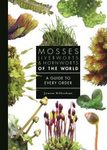![The Right Tools for the Job The Right Tools for the Job]()
Click to have a closer look
About this book
Contents
Customer reviews
Related titles
About this book
A reprint of a classical work in the Princeton Legacy Library. Originally published in 1992.
The Right Tools for the Job examines scientific practice through studies of research tools in an array of twentieth-century life sciences. The contributors draw upon and extend the multidisciplinary perspectives in current science studies to understand the processes through which scientific researchers constructed the right – and, in some cases, the wrong – tools for the job. The articles portray the crafting or accessing of specific materials, techniques, instruments, models, funds, and work arrangements involved in doing scientific work. They demonstrate the historical and local contingencies of scientific problem construction and solving by highlighting the articulation between the tools and jobs. Indeed, the very "rightness" of the tools is contingently constructed, maintained, lost, and refashioned.
The cases examined include evolutionary biology laboratory systems (James R. Griesemer), the plasmid prep procedure in molecular biology (Kathleen Jordan and Michael Lynch), models in the human ecology of African pastoralists (Peter Taylor), the micromanometer in metabolic studies (Frederic L. Holmes), genetics research and the role played by Planaria (Gregg Mitman and Anne Fausto-Sterling) and by corn (Barbara A. Kimmelman), quantitative data in field biology (Yrj Haila), taxidermy in natural history (Susan Leigh Star), technical standardization in bacteriology (Patricia Peck Gossell), and the discipline of immunology as the tool for stabilizing conceptual definitions in the field (Peter Keating, Alberto Cambrosio, and Michael Mackenzie).
Contents
Contributors
Acknowledgments
Pt. 1 Introduction
1 What Tools? Which Jobs? Why Right? 3
Pt. II Co-Constructing Tools, Jobs, and Rightness
2 The Role of Instruments in the Generative Analysis of Science 47
3 The Sociology of a Genetic Engineering Technique: Ritual and Rationality in the Performance of the "Plasmid Prep" 77
4 Re/constructing Socioecologies: System Dynamics Modeling of Nomadic Pastoralists in Sub-Saharan Africa 115
Pt. III Disciplining the Tools
5 Manometers, Tissue Slices, and Intermediary Metabolism 151
6 Whatever Happened to Planaria? C. M. Child and the Physiology of Inheritance 172
7 Organisms and Interests in Scientific Research: R. A. Emerson's Claims for the Unique Contributions of Agricultural Genetics 198
8 Measuring Nature: Quantitative Data in Field Biology 233
Pt. IV Changing Constructions of Tools, Jobs, and Rightness
9 Craft vs. Commodity, Mess vs. Transcendence: How the Right Tool Became the Wrong One in the Case of Taxidermy and Natural History 257
10 A Need for Standard Methods: The Case of American Bacteriology 287
11 The Tools of the Discipline: Standards, Models, and Measures in the Affinity/Avidity Controversy in Immunology 312
Index 355
Customer Reviews



























![Die Vogel-WG: Die Heinroths, ihre 1000 Vögel und die Anfänge der Verhaltensforschung [The Bird Wohngemeinschaft: The Heinroths, Their 1000 Birds and the Beginnings of Behavioral Research]](http://mediacdn.nhbs.com/jackets/jackets_resizer_medium/26/267983.jpg?height=150&width=107)



















